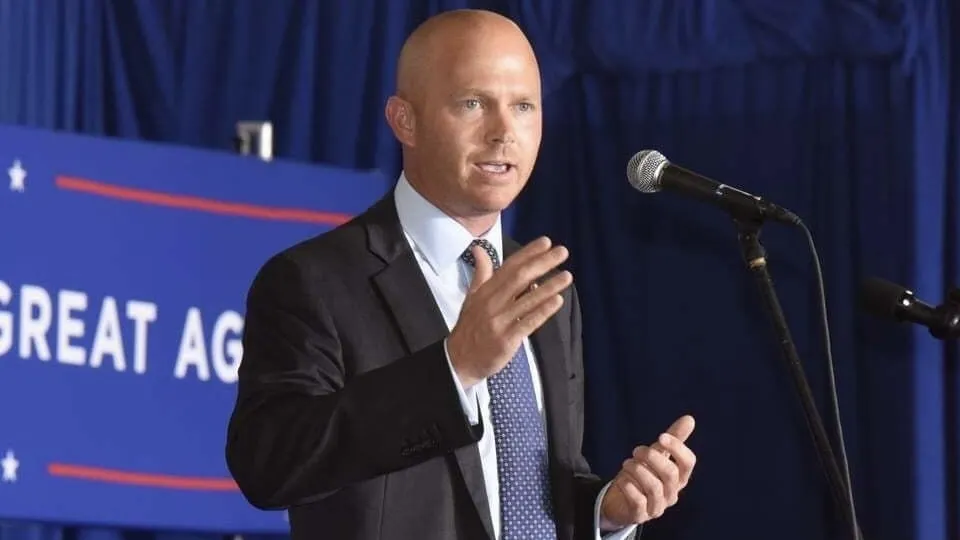A growing number of lawmakers have discussed crypto on Capitol Hill, but how many representatives have actually gotten hands-on with the tech?
That question motivated Rep. William Timmons (R-SC) to engage with a South Carolina constituent, who helped set the Republican up his own digital wallet last week. Using the Ethereum Name Service, aka ENS, Rep. Timmons effectively initialed his self-custodial wallet “wrtiv.eth.”
The goal was to gain some familiarity with technology enabling financial sovereignty, Timmons told Decrypt on Tuesday. The day before, he added his wallet’s custom address to his profile on X (formerly known as Twitter), tacking it on at the end of his profile’s description.
BREAKING: we've now got US congressman @RepTimmons showing off his @ensdomains .eth name on twitter 🔥🔥🔥🔥🔥🔥🔥🔥🔥
frens let's welcome him to the club! pic.twitter.com/Wo2RjdX9nJ
— brantly.eth (@BrantlyMillegan) February 3, 2025
“We can read legislation, we can try to understand policy, but experiencing it is also important,” Timmons said. “Putting ‘.eth’ in my Twitter bio was the least I could do to show that I am trying to help solve this challenge that’s before us.”
The challenge Timmons referred to is honing and passing a series of crypto-related bills that could clarify the industry’s regulatory backdrop, whether that’s legislation for stablecoins or a market structure bill outlining how different agencies should police the space.
As a member of the Subcommittee on Digital Assets, Financial Technology and Inclusion—or simply Digital Assets, as lawmakers refer to it—Timmons said he will collaborate with other lawmakers. He wants to build on bipartisan support for the Financial Innovation and Technology for the 21st Century Act, or FIT21, passed last year.
“We're gonna maybe tweak it a little bit, add some other legislation to it, and make sure that we still have bipartisan support,” he said. “There's been a lot of education that has occurred on both sides of the aisle, and I think that everyone understands the importance of it going forward.”
Last year, Timmons introduced the New Frontiers in Technology (NFT) Act alongside Rep. Ritchie Torres (D-NY). The bill would define and establish “covered NFTs,” which are protected from legal and regulatory treatment as digital collectibles or pieces of art.
Timmons' decision to add “.eth” to his X profile’s description was not related to any bullposting from the president’s son, he said. On Monday, Eric Trump said on X, “In my opinion, it’s a great time to add $ETH. You can thank me later.”
Instead, Timmons was approached by Brantly Millegan, a 10-year veteran of the crypto space who previously served as director of operations for ENS. Millegan told Decrypt he’s known Timmons for years.
“Crypto has become a major policy issue, and he wanted to not just hear about it but actually try it out himself,” he said. “I hope more people in Congress follow his example.”
So far, Timmons’ on-chain experience has admittedly been limited, pointing to a sense of regulatory uncertainty among banks that he experienced firsthand.
“I learned that my bank doesn't like it,” he said. “I've tried to put money on and take money off, and I cannot.”
Edited by Andrew Hayward

